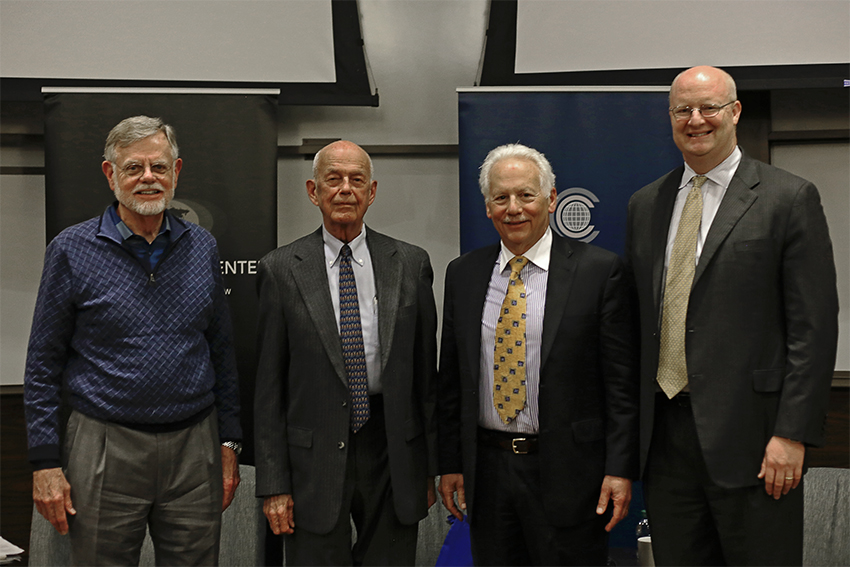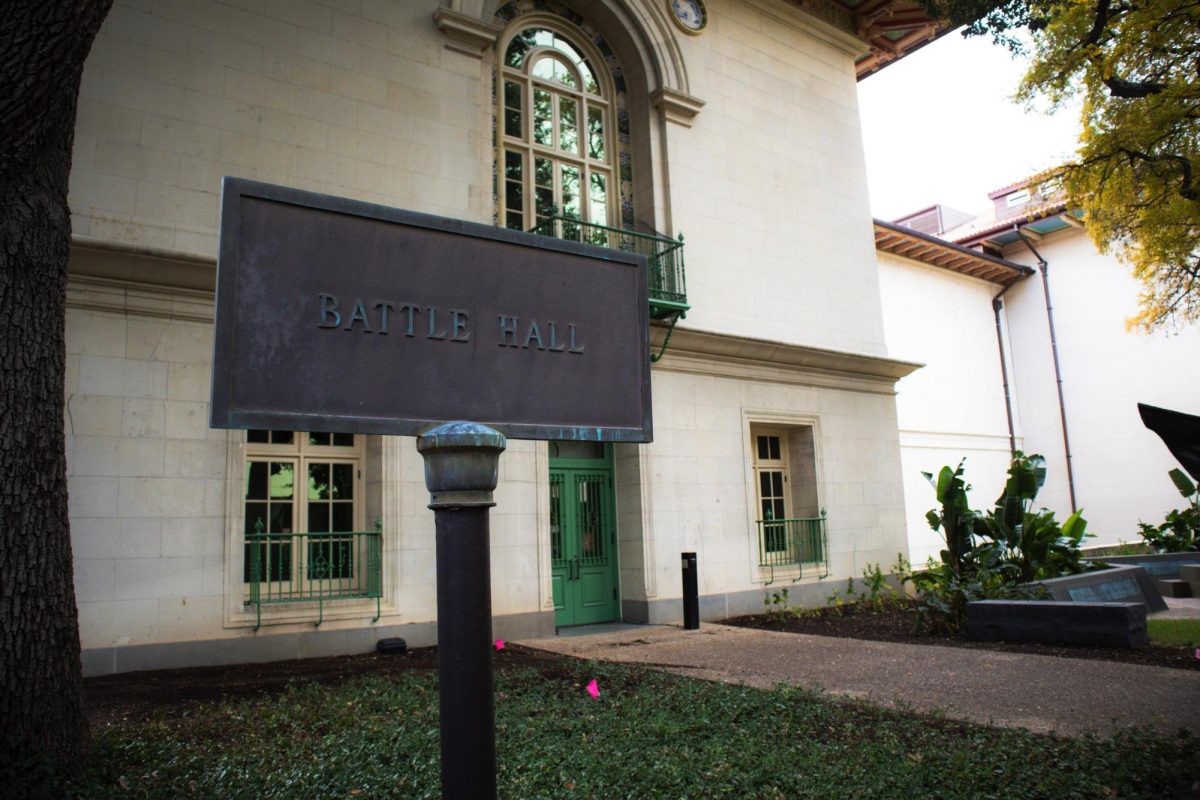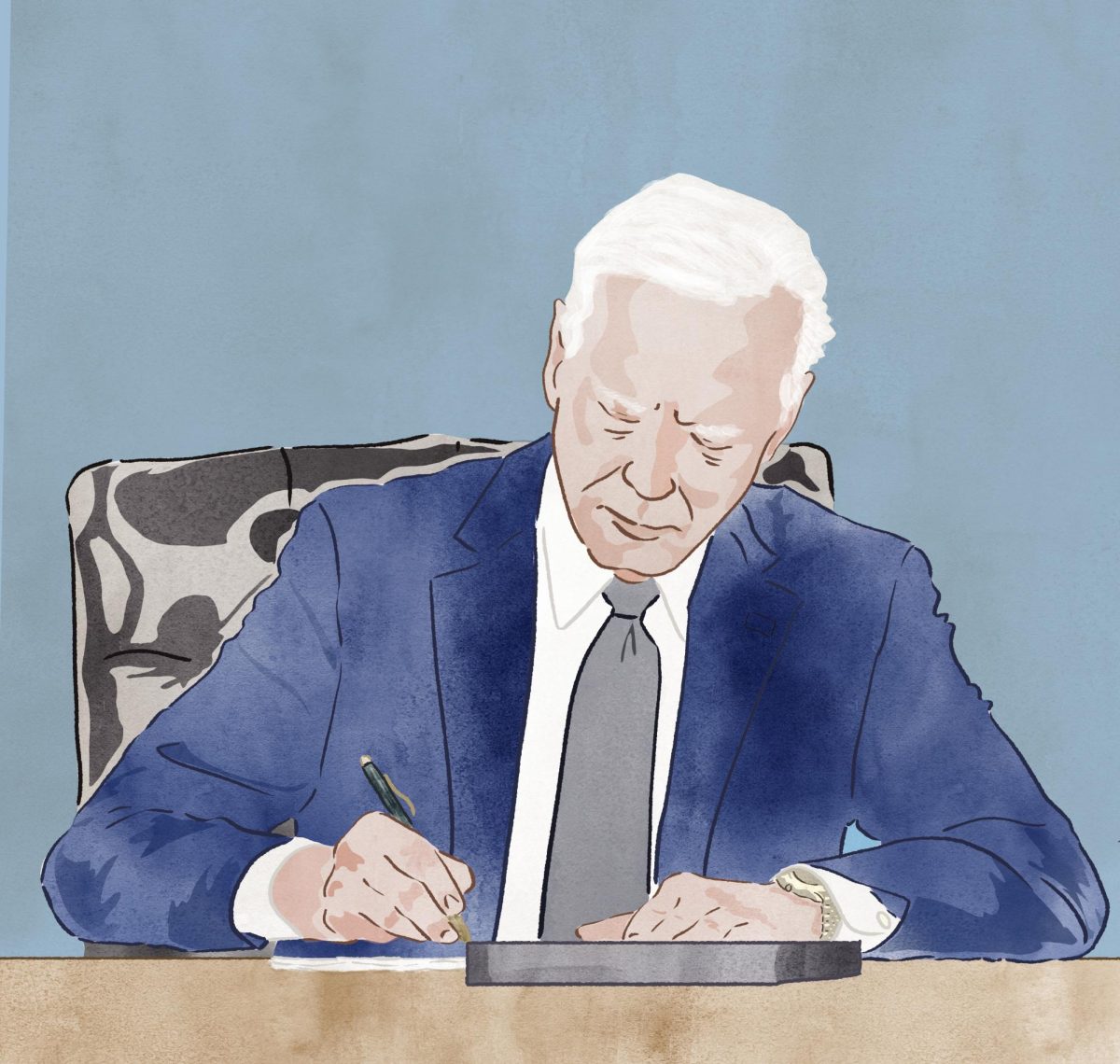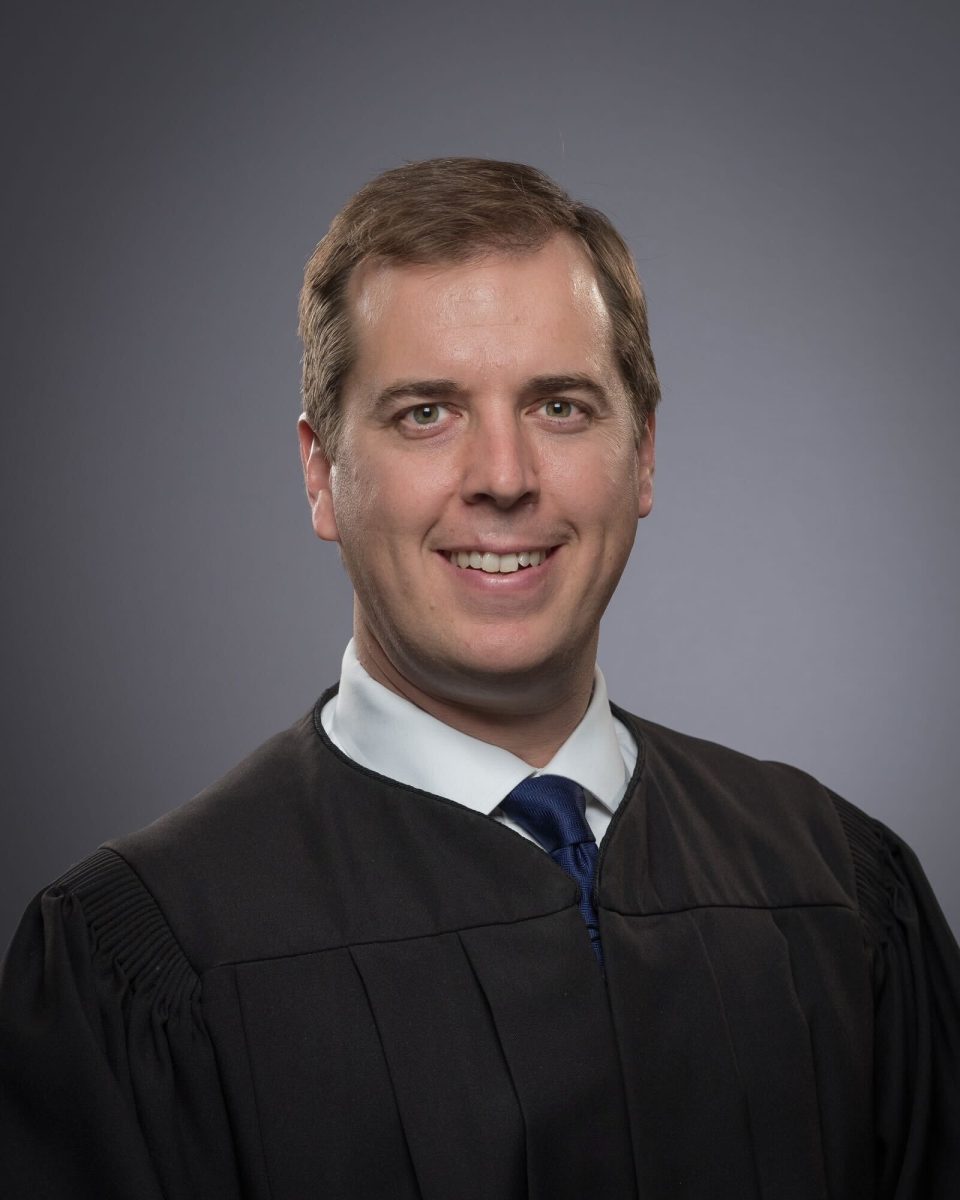The UT Clements Center for National Security teamed up with various institutions Thursday to host a three-day conference for scholars and former policy makers to discuss the impact of former President Ronald Reagan’s administration on global politics in the late 1980s.
The conference was held at the AT&T Hotel and Conference Center. Clements program coordinator Jennifer Johnson said the Center brought together three days’ worth of distinguished guests and panelists from universities across the U.S. and the United Kingdom to analyze how the world transformed during the eight years of Reagan’s presidency.
A talk on Thursday afternoon featured three distinguished members of the Reagan administration: Admiral Bobby Inman, Kenneth Adelman, former U.S. Ambassador to the United Nations, and Henry Nau, who served on the National Security Council.
Jennifer Johnson, program coordinator for the Clements Center, said the conference gives students the opportunity to talk with distinguished policymakers and great professors in the field.
“Part of the Clements Center’s mission is to educate the next generation of national security leaders,” Johnson said. “We really try to put on conferences and events throughout the semester, [and] we run a bunch of programs that really help students prepare for careers in national security, international relations and intelligence.”
Bobby R. Inman is a retired admiral for the U.S. Navy, former director of the National Security Agency and former deputy director of Central Intelligence. Inman currently holds the Centennial Chair in National Policy at the Lyndon B. Johnson School of Public Affairs.
Inman said it was clear from the beginning that Reagan focused on people.
“What I wanted to convey was the warmth of the individual, how sharp the mind was and finally how little interest he had in details,” Inman said. “It was fascinating to sit at the angle and watch the president. He was amazingly relaxed whenever people were talking so endlessly [around him].”
Kenneth Adelman is a former permanent representative to the U.N. and former director of the U.S. Arms Control and Disarmament Agency during the Reagan administration.
“I believe people really do make history,” Adelman said. “There’s a big difference
between transactional presidents and transformational presidents. Working for Ronald Reagan was a delight. He was interested in certain things and not interested in a lot of things. Luckily, he cared about my field, and he cared enormously about my field.”
Henry Nau is a distinguished scholar and professor at the George Washington University and former senior director for international affairs on the National Security Council under Reagan.
“My first impressions (of Reagan) were very favorable,” Nau said. “I think one of his attributes about a leader in this kind of situation was his presence. He just filled the room with presence.”
Michael Sanchez, Plan II and history freshman, said he thought it was very beneficial to be able to sit and hear from all the individuals who had actually worked on Reagan’s administration.
“As a history double major, I’m probably kind of biased in saying history repeats itself and history is very important,” Sanchez said. “But yeah, I mean, it’s our civic duty as people and civilians of this country to make sure we’re educated in presidency and voting.”
A conference was held last November on the administrations of Richard Nixon and Gerald Ford, Johnson said.
The Clements Center conferences are open to the public.





















